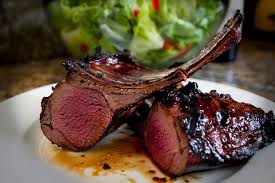Venison – a natural and healthy by-product of exercise of the hunter’s cull programme
Food Law and Hunters Supplying Wild Game for Human Consumption
Do Hunters have to comply with Food Law?
Yes. Hunters who hunt wild game with the intention of selling it for human consumption are food business operators and the food they produce has to meet the relevant requirements of food law.
What about wild game for private domestic consumption?
Wild game hunted for private domestic consumption is excluded from food law.
What food law applies to wild game and who enforces it?
Both European Union (EU) and national legislation apply to wild game hunted and intended to be placed on the market for human consumption.
Whilst the Food Safety Authority (FSAI) has overall responsibility for the enforcement of food law the competent authorities (CAs) directly involved with wild game controls are the Department of Agriculture Food and the Marine (DAFM), the Local Authority Veterinary Service (LAVS) and the National Parks and Wildlife Service (NPWS).
Do hunters need to register as Food Business Operators?
Yes. Hunters intending to place wild game on the market for human consumption must register as a food business operator.
What about records and traceability?
In order to assure traceability hunters must keep certain records and must be able to promptly supply this information to the authorities, if requested.
What records must be kept?
The following records must be kept:
• Date, time and location as well as the type (e.g. deer, pheasant, rabbit) and number of wild game killed.
• Details of the Approved Game Handling Establishments (AGHEs) and intermediaries (e.g. game dealers), if applicable, to whom they have sold wild game as well as the date of supply.
What general hygiene requirements apply to hunters?
• Wild game must be protected from contamination arising from any source including pests, animals, waste and hazardous substances
• Any facilities used in connection with hunting (including equipment, transport facilities and storage facilities) must be kept clean using potable water and where necessary disinfected
• Hunters must report suspicion of contagious disease (e.g. bTB in deer) to the relevant competent authority — Department of Agriculture Food and the Marine (DAFM) or the Local Authority Veterinary Service (LAVS)
• Ensure that persons involved in the handling of such wild game are in good health
What are the hygiene rules for evisceration and transport of wild game?
The intestines of large wild game should be removed as soon as possible after killing game. Care must be taken to prevent contamination from faeces, dirt, animals, pest and other sources of contamination as it is taken away from the site of hunting.
Any vehicles used for the transport of wild game must be kept clean and where necessary, after cleaning, disinfected. During transport game must not be piled, heaped or stacked at any stage as this will cause cross-contamination and make cooling the game difficult.
What about storage of wild game?
Hunters must endeavour to maintain the cold chain for hunted wild game, namely, 4 degrees C or below for small wild game, 7 degrees C or below for large wild game (deer).
The storage temperatures referred to above must be achieved within a reasonable period of time (24 hours of killing). Storage of wild game prior to sale may be in a “game larder”. Game larders must have facilities for active chilling. Game must be separated from each other in the larder.
Do hunters have to be trained?
Yes. Hunters supplying wild game to Approved Game Handling Establishment’s (AGHEs) must be trained in animal health and hygiene relevant to wild game. It is recommended that all hunters undertake such training.
From January 1st 2014 all game supplied to an AGHE must have been inspected by a
trained hunter and be accompanied by a trained hunter declaration.
What is a trained hunter declaration?
It is a statement confirming that when the hunter examined the hunted game:
• no abnormal characteristics were found
• no abnormal behaviour was observed before killing
• there is no suspicion of environmental contamination
What about export of in-fur large wild game?
Only game processed through approved game handling establishments (AGHEs) may be exported and it must be accompanied by a Commercial Document (CD) as well as a trained hunter declaration.
The Commercial Document must be signed by the Official Veterinarian who has conducted an examination of the game. Exported game must be transported directly to an approved establishment in the destination State.



